Lactobacillus – The Other Probiotic Lactic-Acid Bacteria Superstars
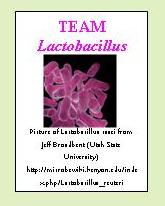 |
Lactobacillus is
the name of a genus of Gram-positive, non-sporulating, rod-shaped bacteria. The genus is classified in the phylum Firmicutes, class Bacilli, and family Lactobacillaceae, which contained up until March, 2020 the |
Lactobacillus are LAB (lactic-acid bacteria) superstar probiotics, next in line after Bifidobacterium, in my opinion. Together, both of these species of good bacteria work to help you be healthy.
Up until early 2020 this genus was comprised of 261 species that were extremely diverse at phenotypic, ecological and genotypic levels. At that time, J. Zheng et al. published a study asserting that the 261 species should be reclassified into different genera to make each genus more uniform, although they stated that the generic term ‘lactobacilli’ could still be used to indicate all organisms that were classified as Lactobacillaceae before 2020.
As a result of that study, 261 species were whittled down to 24. The new names are long and frankly, hard to pronounce, but most are based on "signature" genes that identify them. There are 24 genera birthed from the one Lactobacillus genus, with 23 novel genera. The names of the common species that you may recognize are listed in their new genera:
- Acetilactobacillus
- Agrilactobacillus
- Amylolactobacillus
- Apilactobacillus
- Bombilactobacillus
- Companilactobacillus
- Dellaglioa
- Fructilactobacillus
- Furfurilactobacillus
- Holzapfelia
- Lactobacillus
- Lapidilactobacillus
- Lacticaseibacillus – casei, paracasei, rhamnosus
- Lactiplantibacillus – plantarum
- Latilactobacillus – curvatus, sakei
- Lentilactobacillus - kefir
- Levilactobacillus – brevis
- Ligilactobacillus – salivarius
- Limosilactobacillus – fermentum, reuteri, vaginalis
- Liquorilactobacillus
- Loigolactobacillus
- Paucilactobacillus
- Schleiferilactobacillus
- Secundilactobacillus
Most true Lactobacillus are adapted to specific hosts
(like bees) or found in specific fermentations (like potato mash). These true Lactobacillus are commonly found in humans, and the links will be updated as I update each webpage:
- L. acidophilus
- L. delbrueckii
- L. iners
- L. gasseri
- L. helveticus
- L. crispatus
- L. jensensii
- L. johnsonii
These good bacteria have had GRAS (generally recognized as safe) status in the US, meaning that there is general recognition of their safety through experience based on common use in foods. They also have had European QPS (Qualified Presumption of Safety) status. There should be no reason for their safety status to be revoked with the reclassifications.
Although some of the species are associated with dental caries or with infections in immune-system compromised people, most of the time they are beneficial bacteria.
|
For instance, some these microbes are found in everyday foods and drinks such as yogurt, kefir, cheese, and many others. So you can get the basic benefits of these bacteria just by eating some healthy fermented foods and drinks! |
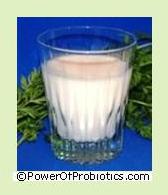 |
Why Lactobacillus?
Lactobacilli (plural) are some of the most well-known probiotics. These microbes, like Bifidobacterium, are lactic-acid producing bacteria (LAB) and in fact the two genera (plural of genus) share a few common genes. This means that they take in carbohydrates and produce lactic acid. Lactobacillus prefer different kinds of carbohydrates depending on their species. Some of them can use lactose, which is nice to know if you have lactose intolerance.
Some of them also produce vitamins, short-chain fatty acids, bacteriocins
(antibacterials) and antibiotic chemicals, depending on their living conditions.
The benefits of their by-products are discussed in greater detail here.
What Do They Do?
Some Lactobacillus
species, like some Bifidobacterium species,
have a beneficial effect on us just by being within us! They are able to perform many functions with benefits for many health conditions, from depression to IBS to to pain to Candida infections to weight management, among others. Probiotics in this genus serve critical purposes in the human body, and species adapted to animals serve important functions in them.
Similar to Bifidobacterium, the total numbers of Lactobacillus bacteria in your body are influenced by diet, lifestyle and general health. And like the bifidos, studies have shown that lactobacilli require small amounts of iron for growth depending on the environment they are in, but too much free iron in the intestine from stress, intestinal bleeding, surgery, trauma or dietary supplements can lead to accelerated growth of other, possibly harmful, microbes. Lactobacilli have a hard time competing with those faster-growing microbes, so it is important that you consistently eat, drink or take supplemental probiotics to keep their numbers high.
Where are Lactobacilli Found?
The previous classification of lactobacilli were commonly found in the environment. Some of the true Lactobacillus are still found there. As I mentioned, the smaller genus size now contains species that are more host-specific. In humans, they are found in the gastrointestinal (GI) tract, from the mouth, the nasal passages (sinuses), the throat, the esophagus, the stomach, the small intestine (the duodenum, jejunum and ileum sections) and the colon (large intestine), They are also found in the female vagina and urogenital tract.
Most, but not all, species of these bacteria in humans are able to withstand stomach acid and bile acids and are able to attach to the mucus lining the GI tract and interact with them. Lactobacillus are the most popular genus in the last section of the small intestine, the ileum, and in the female vagina. Once established, they tend to remain life-long under normal circumstances, particularly with consistent replacement in the GI tract. Ingesting them can cause temporary increases in numbers in your body.
As of June, 2020, there aren't many supplements that contain numerous species of the true Lactobacillus. Here are some that do have the true species:
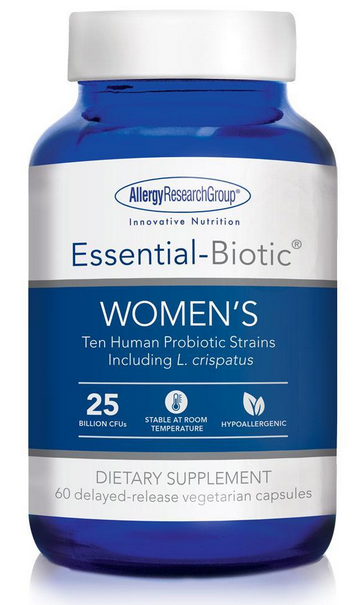 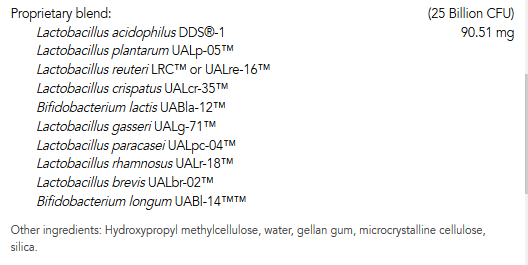 |
One of the supplements with Lactobacillus strains that I recommend for ladies for urogenital health is Essential-Biotic Women's from Allergy Research Group that you can find in my dispensary. This supplement has ten human probiotic strains at a potency of 25 billion CFUs per delayed-release vegetarian capsule. It is non-dairy, gluten-free, non-GMO, and stable at room temperature - no refrigeration required. Note that some of the species are no longer classified as Lactobacillus. |
|
Douglas Labs Multi-Probiotics has 15 billion CFU total. It has 4.3 billion CFU of DDS-1 as well as L. gasseri and contains milk. Find it in my online dispensary. |
|
Biotics Research BioDophilus Caps have DDS-1 in them. Find it in my online dispensary. |
|
Biotics Research BioDophilus-FOS powder has DDS-1 in it. Find it in my online dispensary. |
|
UP4 products by UAS Laboratories (The link takes to you my review of them. Each UP4 product contains the DDS-1 strain.) |
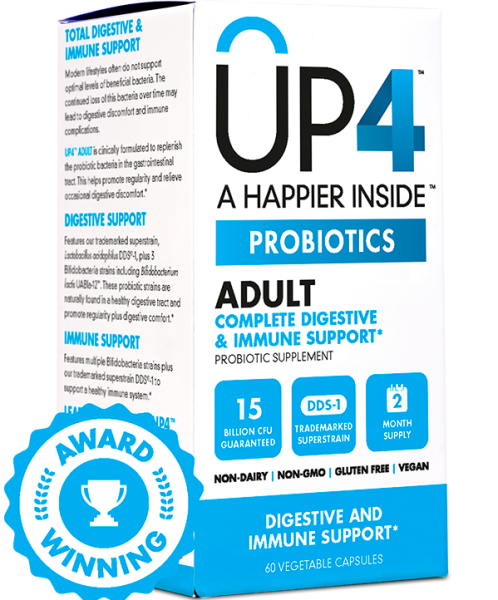 |
Dr. Mercola's Complete Probiotics (The link takes you to my review of the product.)
Reference for reclassifications: Zheng et al., Int. J. Syst. Evol. Microbiol. 2020;70:2782–2858.
I research studies and share my clinical experience to write this free site to help you find solutions to your problems. As part of that, I recommend products and services that I genuinely believe will be of help to you. If you click on a link to a product/service, I may receive a small commission to support my efforts if you buy something. The item does not cost you more.
Thanks for visiting this site! If you've enjoyed reading this page or have found the information to be useful to you, please "like", tweet about it, or share it so others can benefit, too. You can leave comments below via Facebook or Disqus.
Comment with Disqus (including as a guest), Twitter or Google accounts:
If you are one of my many readers without a Facebook account, you can still comment.
Disclaimer: Please note: By law, I cannot provide any personalized recommendations for your specific health concern on this site. The information contained in this site is educational in nature and is not intended as diagnosis, treatment, prescription or cure for any physical or mental disease, nor is it intended as a substitute for regular medical care. Consult with your doctor regarding any health or medical concerns you may have.
Subscribe to my monthly newsletter and receive a free copy of "How to Use Probiotics to Lose Weight and Be Healthier".

To comply with the EU's GDPR data privacy regulation, please subscribe here:
Looking for some quality professional supplements, including probiotics? Check out my online dispensary, as I will be doing reviews of some of these products in the future. Click on the Fullscript picture. (Note: If you were a former Wellevate customer, please switch to Fullscript for a better customer experience. Thanks!)
Some competitors of SBI (Solo Build It) are posting fake negative reviews of SBI. If you are considering creating your own website business, or if you have a brick-and-mortar business but want an online presence, I highly recommend SBI!


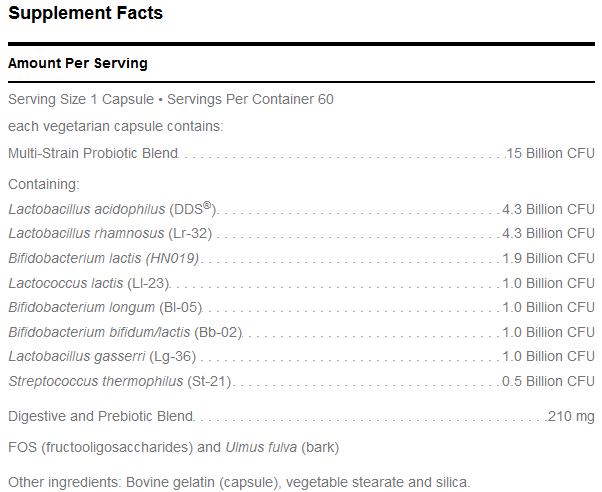
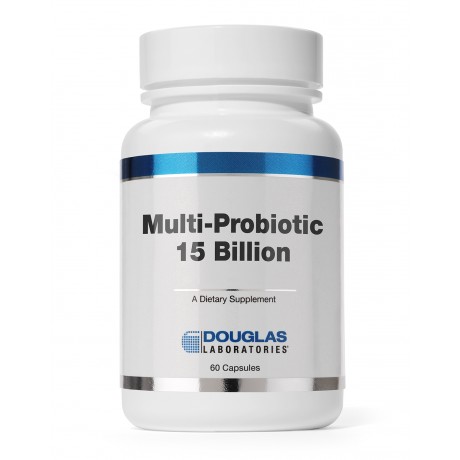
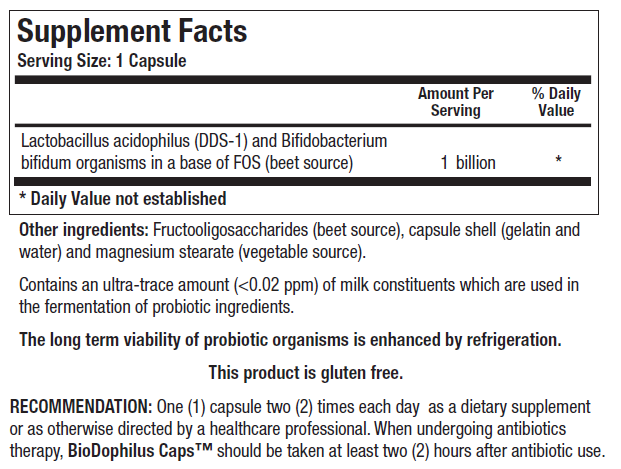
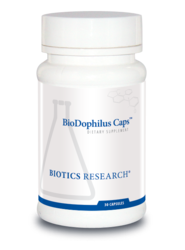
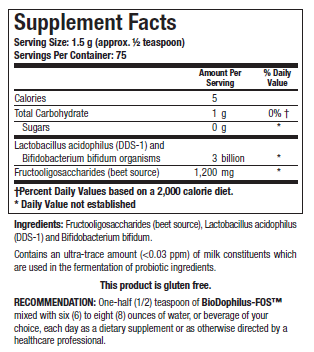
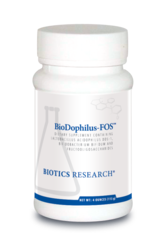
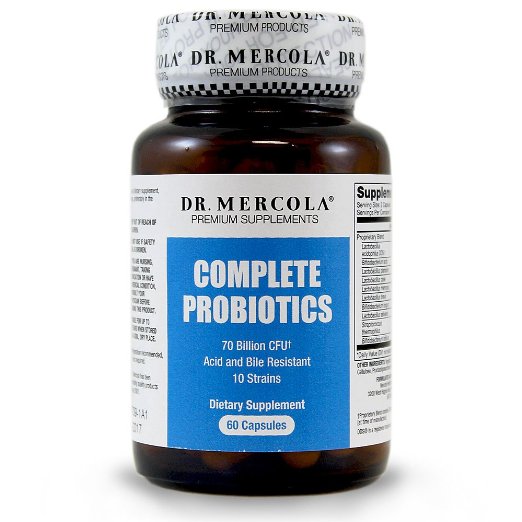



Comment with Facebook!
I'd love to hear your opinion about what you just read. Leave me a comment in the box below! Other commenting options follow the Facebook comments.